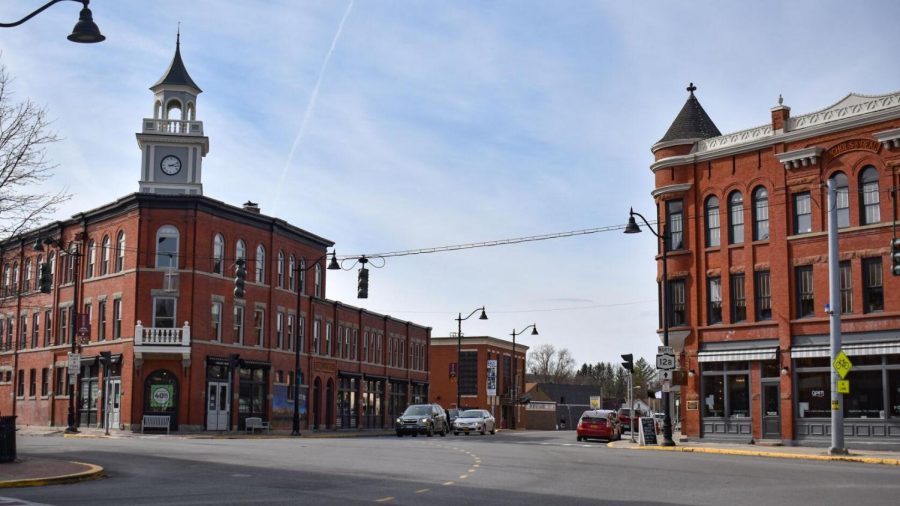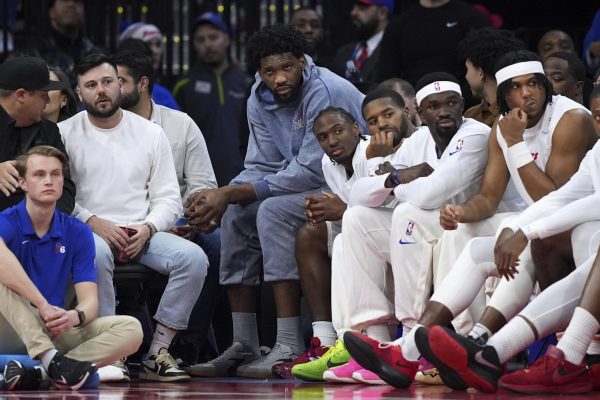COVID-19 Restrictions Alter Life for Seniors Living Off-Campus in the Village
Seniors approved to live off-campus have begun to saturate downtown spaces after moving into their off-campus residences at the start of the year. As residents of the Village of Hamilton, it is possible that those living outside of the confines of university owned, and controlled, housing have the highest stakes of anyone in adhering to the Commitment to Community Health. These off-campus seniors therefore must vigilantly uphold safety precautions and maintain the fragile balance between the Colgate community and that of the Village of Hamilton in order to prevent a resurgence of Covid cases in the near future.
Complying with the rules set forth is imperative, according to the university’s webpage, which reads “not only to protect the campus community, but also to protect those individuals and families living in the Village and Town of Hamilton.”
The message is clear: the health and safety of the Hamilton community remains a top priority and that those living off-campus must respect and acknowledge.
Students living off-campus are strictly prohibited from hosting large gatherings at their residences throughout the entirety of the semester. This rule acts as a guiding principle for the cannon of regulations imposed upon students living on campus, and has been an issue of particular disappointment. Off-campus students will be permitted to gather in groups of 10 or fewer in their common social spaces during Gate 2, and as room capacity permits in Gate 3.
“I think the biggest difference that will occur this year for the seniors living off-campus is the ability to willingly congregate,” recent graduate Maggie Reed reflects. “I couldn’t have done it if I didn’t also have friends over or spend time with my housemates often. I think it could be detrimental to both mental and physical wellbeing for seniors living off-campus to have to spend so much time alone or be expected to use their off-campus spaces as their personal library, dining hall, gym, bedroom and so on.”
Off-campus resident senior Kobi Grant shared a similar concern. “In the past, I enjoyed hanging out at my older friend’s houses during the week and on weekends, and unfortunately, I won’t be able to see my friends until later in the semester. Even after the quarantine, we’re only able to have a few friends over at a time, and it will take some time getting used to those rules.”
Some students are embracing the changes and finding silver-linings where they can.
“I’m excited to see the ways the social scene changes with the new restrictions — I think we’re going to have an opportunity to become more considerate, empathetic and intentional as people which is for the better,” off-campus senior Shelley Liu said.
Off campus senior Claire Bergerson echoed the sentiment.
“I think the situation lends itself to a heightened focus on developing relationships in the way the social culture at Colgate hasn’t contributed in the past… Especially as a senior, I feel like this is a great opportunity to spend more quality time with the people I really care about,” Bergerson said.
While students may be feeling a mix of emotions in regards to what the off-campus experience will be like in comparison to years past—anger, disappointment, curiosity, anxiety, excitement — senior Genevieve McCarthy said she feels this added responsibility of living downtown amongst Hamilton community members, and the accompanying social sacrifices, is more than just the product of university policy.
“I think a lot of things will be different, but the world is different now. The lack of social interaction is a global response, not just a Colgate thing. Our interactions with each other, the village and just the general freedom of movement will be different, but it is like that now and for a very real reason… There are times where I wish a certain rule was different, but I trust that it’s there to protect a different group [of people] than my own as an off-campus senior” McCarthy said.
In general, many protocols look the same for off-campus students as they do for those living in University owned housing. If an off-campus student contracts COVID-19, the student is required to contact Student Health Services to receive isolation instructions. Students living off-campus who are identified as close contacts with someone who has contracted COVID-19 must follow the university’s instructions for quarantine. Students will be required to isolate or quarantine in their private off-campus residence or to return to their primary residence if they live within four to six hours driving distance from campus.
Off-campus students will follow all quarantine rules that on campus students must adhere to upon arriving on campus. However, students living in residences that have backyards, driveways or balconies may, in accordance with Department of Health New York State guidelines, could spend as much time as they wish outside during the quarantine so long as they stay on their property. Social distance must be maintained and non-residents are not permitted to gather in these outdoor spaces.
Students without private lawns were transported to the Athletic Fields/ Track area via a Colgate Cruiser that will do a continuous loop of the route during supervised outdoor times (9-11 am, 2:30-4:30 pm) each day. Off-campus students may walk to and from the cruiser stop during these time windows. At no other point during the quarantine period could they leave their residences.
Perhaps one of the more daunting facets of the quarantine for off-campus students was coming prepared with food to last the entire duration of quarantine. Meals from Colgate’s dining services could not be delivered to off-campus residences; during a town hall meeting in early August, Dean of the College Paul McLaughlin explained that, from a logistical standpoint, it simply was not feasible. Students living off campus are expected to come with groceries for their 14-day quarantine, but will be able to order additional food from delivery services such as ‘Gate Grubs or via local stores like Parry’s and Big M.
“I was initially a bit frustrated especially since off-campus students were given a lot of ‘no’s’ – no going to the grocery store, no going outside, etc.—with no alternative options in place,” off-campus senior Audrey Cussen, who travelled to campus from California, said. “Since then, Colgate has done a great job of accommodating off-campus students and making sure we have access to the resources we need to successfully pull off the first stages of quarantine.”
This perception of the work administrators have put in to be able to successfully reintegrate Colgate students into the community marks a common theme amongst off-campus students. However, there remain frustrations. Some students felt information was not always propagated in a clear way for the role off-campus students would play in the school’s reopening plans.
“I had negotiated a move-in date with my landlord in early July, planning with both my family and my employer for a defined move-in period. It definitely felt unfair that Colgate, on the threat of severe disciplinary repercussions, told me, two week before my arrival, that I couldn’t move into my already paid-for apartment that I was legally allowed to be in as a Massachusetts resident,” senior Chris Burke said.
Burke’s frustration, paralleling that of many other off-campus seniors, stems from the lack of transparency in how information pertinent to the return of off-campus students was conveyed. Nonetheless, he understands, like every other off-campus student interviewed, why the rules are the way they are.
“With that being said, I am extremely grateful for President Casey’s leadership and the effort of Colgate’s staff to invite us back to campus when so many schools are unwilling to do the necessary planning that Colgate has undertaken,” Burke continues.
The off-campus experience for seniors is not the same as years before,but not all is lost. Surely, more is being asked of those living off-campus. The stakes are immeasurably higher. Seniors in private residences, more than anyone else on campus, are expected to foster a consciousness for the impact their personal decisions directly have on the well-being of the Village of Hamilton.
The implementation of restrictions and changes to off-campus life do not automatically erase everything so wonderful about it. A massive part of the experience is trying your hand at living in a space completely your own and all the moving pieces and parts contingent on doing so successfully.










